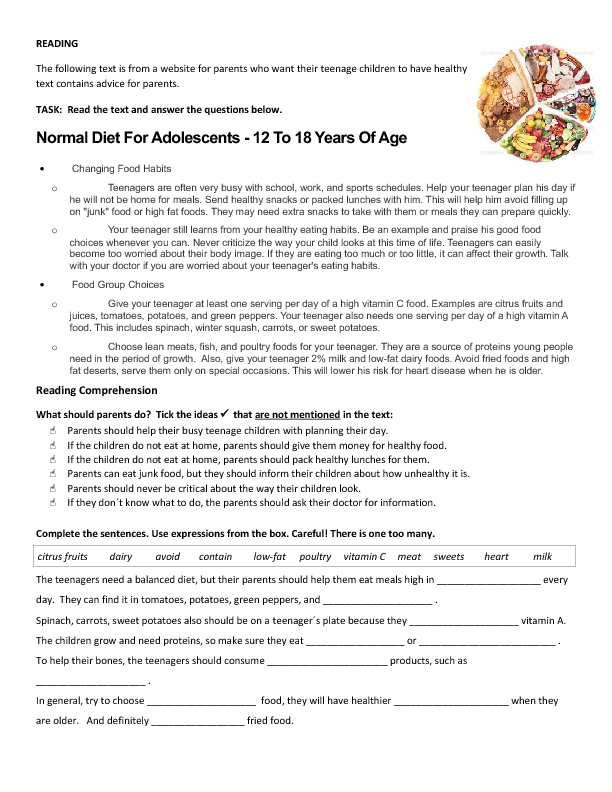
These are some health tips for the day: Get up and walk, do your best hygiene, and eat vegetables with your friends. For more ideas, visit a trusted website. Take regular breaks during your workday and rest when you are ill. Stay hydrated and avoid clutter in your home. Avoid eating too much junk food. Keep your home clean and consult a trusted website for advice on health. Follow these health tips of the day to stay healthy every day!
Take the stairs
If you are struggling to get the recommended daily allowance of physical activity, one of the best ways to do it is by taking the stairs. Even though it seems impossible, stairs can help you tone your body and burn extra calories. You don't have to go to a gym or change clothes. In fact, you can do it anywhere! You don't need to spend time searching for a staircase within your community.
Good hygiene
It is important to practice good hygiene on daily basis. For the prevention of bacteria and dead skin cells from building up, washing your hair and body regularly is important. For gum disease prevention, flossing and brushing your teeth daily is important. After touching germ-infested surfaces, people or animals, it is important to wash your hands. Your feet must be kept clean. Poor hygiene can lead directly to serious illness.
Your bff can make vegetables your bff
Vegetables and fruits are naturally best friends. You can add them into your favorite foods and snacks. Vegetables are also great for adding to other foods like baked beans, brown rice, and cooked quinoa. They can be blended to make a base for your dish. Try adding a few to your favorite dish.

Water should be drank first thing in morning
This may seem like a obvious tip for health, but drinking water in the first hour of your morning is a great way to stay hydrated. Water accounts for 60% our body weight. Not only that, but it is also considered an essential nutrient. Regular water intake is beneficial to your body and will make you feel more positive. These are some of the benefits. You should also avoid eating after drinking water as your cells will need to detoxify.
Taking a walk
One of the health tips of the day is to take a walk. Even a brief walk can make a big difference in your fitness level. The pace at which you walk will depend on your level of fitness. Bonnie Stoll, Los Angeles personal trainer and cofounder of EverWalk movement Bonnie Stoll suggests walking 20 minutes per kilometer. It's possible to walk for longer distances if you don't have the time.
Drinking apple cider vinegar
Apple cider vinegar may sound like an odd way to start the morning, but this beverage is actually quite beneficial. It can increase insulin sensitivity and lower blood sugar levels during meals. Even for people with diabetes, its effects can be beneficial. However they should speak to their doctor before they begin an apple cider Vinegar regimen. If you have diabetes type 2, it can help with your symptoms.
Getting enough sleep
Proper sleep is crucial for maintaining your overall health. Your age and your stage of development will determine the best time to get sleep. Sleep is crucial for memory consolidation, mood regulation and the completion of daily tasks. Each night, you should aim to get 7 hours sleep. It's not always easy to get enough rest. These are some simple tips to help you get more sleep. To keep track of how much sleep you get each night, keep an eye on your sleep diary.

FAQ
What should my diet consist of?
You should eat lots of vegetables and fruits. These vegetables and fruits are rich in vitamins and minerals that will keep your immune system strong. Additionally, vegetables and fruits are high fiber. This helps with digestion and keeps them full. You should eat at least five servings per day of fruit or veg.
Drink plenty of water. Water flushes toxins from your body and helps you feel full between meals. Drink about eight glasses each day.
Refined grains should be replaced with whole grains. Whole grains have all the nutrients they need, including B vitamins. Refined grain has lost some of its nutrition.
Avoid sugary beverages. Sugary drinks are full of empty calories and lead to obesity. Choose water, milk or unsweetened tea instead.
Avoid fast food. Fast food has very low nutritional value. It may taste great but it won't give you the energy you need to function properly. Use healthier options, such as soups, sandwiches, salads, and pasta.
Limit alcohol intake. Alcohol is a poor nutrient and has empty calories. Limit your consumption to no more than 2 alcoholic beverages per week
Try to cut down on red meat. Red meats contain high amounts of saturated fats and cholesterol. Instead, choose lean cuts of beef and pork, lamb, chicken or fish.
Here are five ways to lead a healthy lifestyle.
Living a healthy lifestyle includes eating right, exercising regularly, getting enough sleep, managing stress, and having fun! You should avoid processed foods, sugar, or unhealthy fats. Exercise helps burn calories and strengthens muscles. You can improve your memory and concentration by getting enough sleep. Managing stress reduces anxiety and depression. Fun is key to staying young and vibrant.
How can I determine what is best for my health?
Your body is your best friend. Your body will tell you how much exercise, nutrition, and sleep you need. It is important to listen to your body to ensure you are not doing too much. Take care of your body and make sure that you're staying healthy.
What's the difference between a virus & a bacterium?
A virus can be described as a microscopic organism that cannot reproduce in another cell. A bacterium (or single-celled organism) reproduces by splitting itself into two. Viruses can be as small as 20 nanometers, while bacteria can grow up to 1 micron.
Viruses can be spread by contact with bodily fluids containing infected substances, such as saliva, urine and semen. Bacteria can easily be spread from direct contact to contaminated surfaces and objects.
Viruses can enter our bodies through cuts, scrapes, bites, or other breaks in the skin. They can also enter the body through the mouth, nose, eyes and ears, vaginal, rectum or anus.
Bacteria can get into our bodies through cuts, scrapes and burns, insect bites, or other skin breaks. They can also get into our bodies via food, water or soil.
Both viruses and bacteria can cause illness. But viruses can't multiply within their hosts. So they only cause illnesses when they infect living cells.
Bacteria can cause illness by multiplying in the body. They can infiltrate other parts of the body. Antibiotics are needed to eliminate them.
How can I live a life that is full of joy every day?
Find out what makes YOU happy. This is the first step in living a life that you love. Once you are clear about what makes you happy and satisfied, you can move on to the next step. Asking others about their lives can help you to see how they live the best life possible.
You can also read books like "How to Live Your Best Life" by Dr. Wayne Dyer. He discusses finding happiness and fulfillment throughout our lives.
How to measure body fat?
A Body Fat Analyzer (BFA) is the best method to measure bodyfat. These devices are used to determine the percentage of bodyfat in people who desire to lose weight.
What are 10 healthy habits you can adopt?
-
Breakfast is a must every day.
-
Don't skip meals.
-
You should eat a balanced diet.
-
Get lots of water.
-
Take care of your body.
-
Get enough sleep.
-
Stay away from junk foods.
-
Get at least one form of exercise each day.
-
Have fun
-
Find new friends
Statistics
- WHO recommends reducing saturated fats to less than 10% of total energy intake; reducing trans-fats to less than 1% of total energy intake; and replacing both saturated fats and trans-fats to unsaturated fats. (who.int)
- This article received 11 testimonials and 86% of readers who voted found it helpful, earning it our reader-approved status. (wikihow.com)
- In both adults and children, the intake of free sugars should be reduced to less than 10% of total energy intake. (who.int)
- nutrients.[17]X Research sourceWhole grains to try include: 100% whole wheat pasta and bread, brown rice, whole grain oats, farro, millet, quinoa, and barley. (wikihow.com)
External Links
How To
What does the word "vitamin" mean?
Vitamins are organic compounds naturally found in food. Vitamins help us absorb nutrients from foods we eat. Vitamins are not made by the body, so they must be obtained through food.
There are two types vitamins: water soluble or fat soluble. Water-soluble vitamins dissolve in water easily. Examples include vitamin C,B1 (thiamine), B2 (riboflavin), B3 (niacin), B6 (pyridoxine), folic acid, biotin, pantothenic acid, and choline. The liver and fat soluble vitamins are stored within the liver and in fatty tissue. These include vitamin D, E and K, as well as beta carotene.
Vitamins can be classified according to biological activity. There are eight main groups of vitamins.
-
A – Essential for normal growth, and the maintenance of good health.
-
C – essential for proper nerve function.
-
D – Essential for healthy teeth, bones and joints
-
E is necessary for good vision, reproduction.
-
K - essential for healthy muscles, nerves, and bones.
-
P - Essential for strong bones and teeth.
-
Q – aids digestion of iron and iron absorption
-
R is required for the production of red blood cells.
The recommended daily intake (RDA), of vitamins varies with age, gender and physical condition. RDA values are set by the U.S. Food and Drug Administration (FDA).
For adults 19 years and over, the RDA of vitamin A is 400mg per day. However, pregnant women need 600 micrograms per day because it is important for fetal development. Children ages 1-8 require 900 micrograms per day. Infants under one year of age require 700 micrograms per day, but this amount decreases to 500 micrograms per day between 9 months and 12 months of age.
Children between the ages of 1-18 need 800 micrograms per daily for obesity, while children overweight require 1000 micrograms. Children underweight or obese will need 1200 mg per day.
Children between 4 and 8 years old with anemia will need 2200 micrograms daily of vitamin C.
2000 micrograms are required daily for good health in adults over 50. Women who are pregnant or breastfeeding need 3000 micrograms per day due to increased nutrient requirements.
1500 micrograms are required daily by adults over 70 because they lose approximately 10% of their muscle each decade.
Women who have been pregnant or are lactating require more than the RDA. Pregnant woman need 4000 micrograms daily in pregnancy, and 2500 per day after childbirth. Breastfeeding mothers need to consume 5000 micrograms every day when breastmilk has been produced.